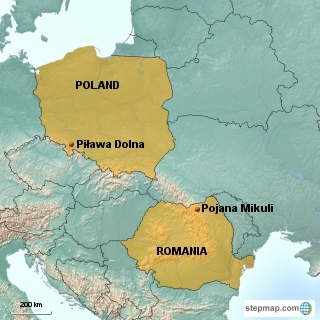My name’s Maksymilian Juraszek. I was born on 27th October 1933 in Romanian Bukovina in a village Poiana Micului. There were 12 people in my family: my parents and 10 children – I had five sisters and four brothers.
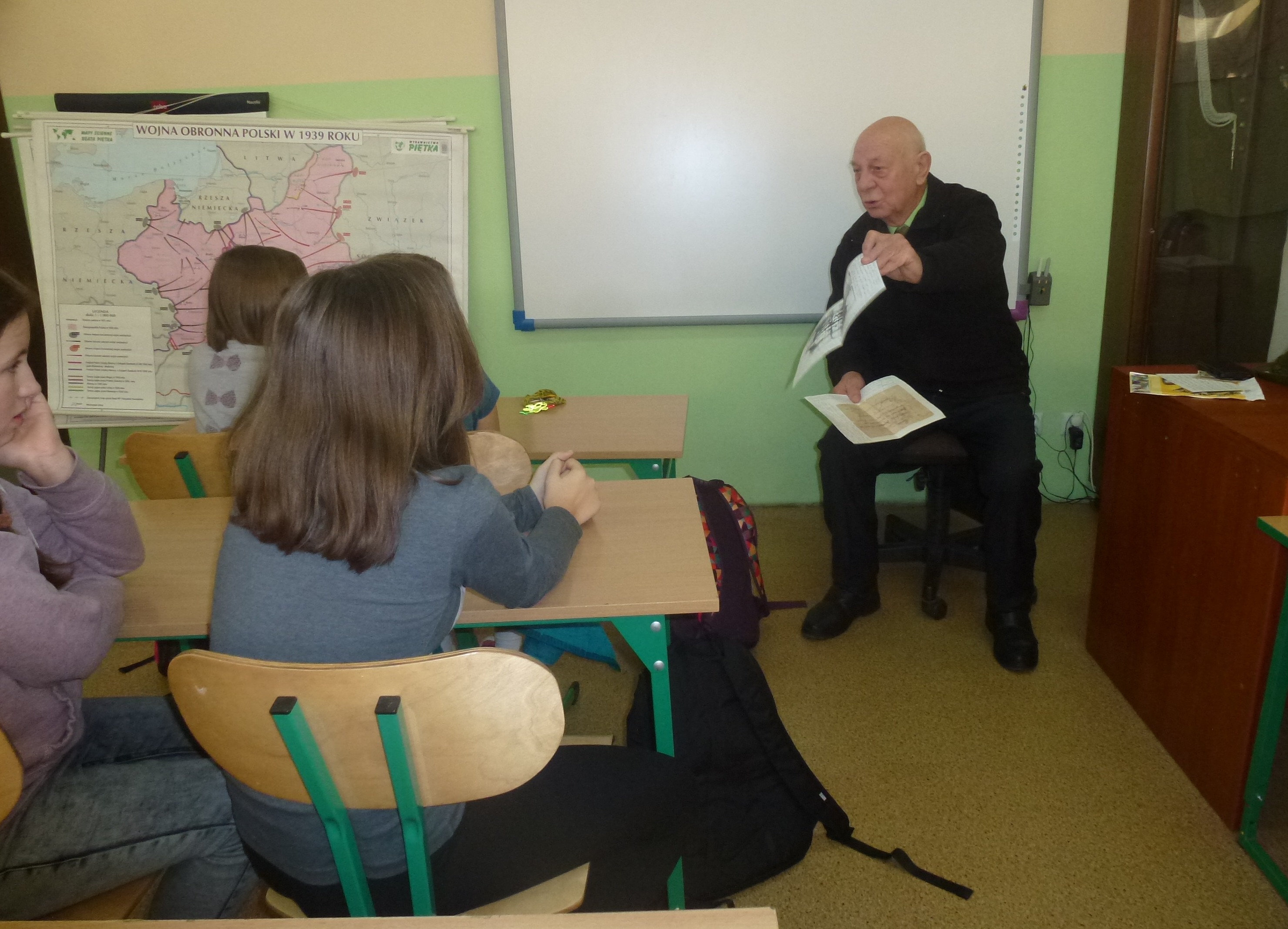
My ancestors came from Czadca. They left their motherland in 1803 to look for better life. They settled in Bukovina and established a village there. In the village lived people of three nationalities – German, Romanian and Polish. Together they built a school and a church. All people lived in the same village being friends. People spoke Romanian, German and Polish.
Before WW2 our village was a resort. In the summer tourists were staying in the village. Polish people built Polish House with a dining room, a kitchen, a swimming pool and bedrooms for rent. The tourists also were staying with the villagers.
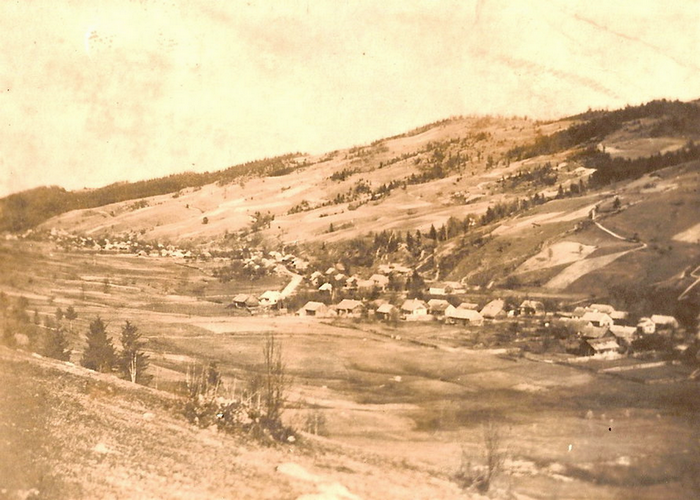
Poiana Micului village before WW2.
In 1939 some Polish tourists straight from our village had to go the army, because Germany invaded Poland on 1st September 1939 and the war began. In 1940 German families were moved to occupied by Germany Poland and they were settled in Polish families’ houses. The Poles were deported to Germany, to the camps or to poorer places, where they had to work for German invaders.
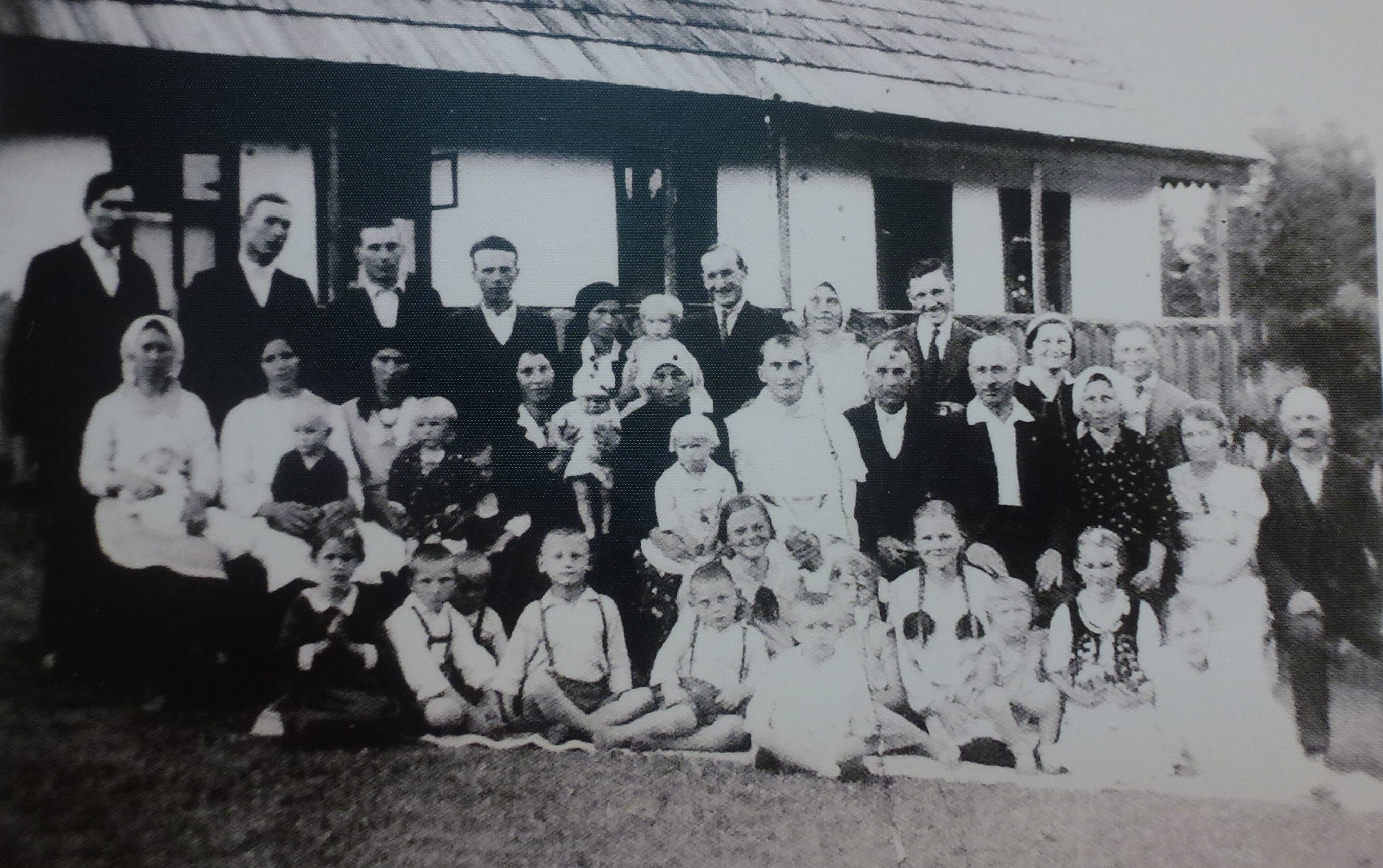
Photo taken in August 1940, 7-year-old Maksio is in the first row.
In 1940 I was 7 and I started going to school, where I was taught Romanian. At home we spoke Polish only and Polish children didn’t know Romanian language at all. We started from the beginning, word after word. In Year 1 we didn’t have notebooks – we had small school boards in a wooden frame, we wrote with a scribe tool, and we eraze with a small cloth. On one side of the board there were lines, on the other one – checked pattern. In Year 2 we already had paper notebooks, we wrote with pencils. Later we started to write with inkwells. At school I was taught Maths, Romanian, History and Science. We had two teachers. The school lasted for 7 years. Years 1,2,3 and 4 were in one classroom and Years 5,6 and 7 in the other. My teacher learnt to speak Polish and she spoke to us in Romanian and in Polish. After school I fed the cows in the meadows. Our parents didn’t buy us any toys. All the toys we were making on our own.
At the beginning of year 1944 soldier patrols started coming to our village – German and Soviet patrols as the front was very near our village.
My uncle Michał, a forester, whose wife was German, could speak German. They were often visited by German patrols and they could talk about current political situation.
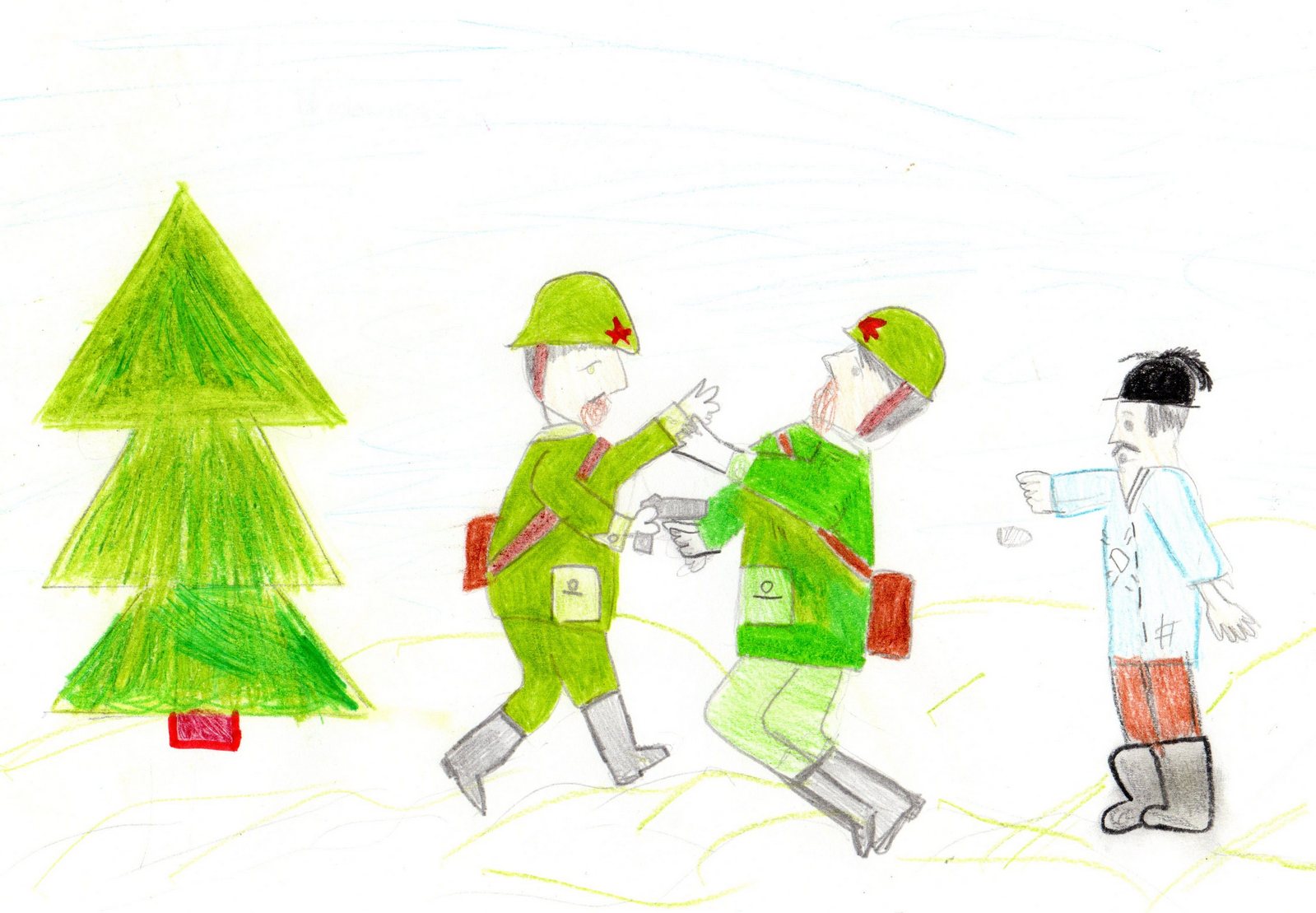
Soviet soldiers fight by Magda
On 2n February 1944 a Soviet patrol came and they took my father. They wanted him to lead them to the mountain nearby (1800 m) to see the German army. When they reached the top of the mountain, two soviet soldiers started to fight and one of them dropped his rifle, which fired. The bullets went very near my father – between his arm and body. Fortunately they missed him. The partol’s commander was very angry with his soldiers and punished them. He also gave my father a piece of paper and told him: Whenever you are in a trouble show this to a Soviet officer, he will help you.
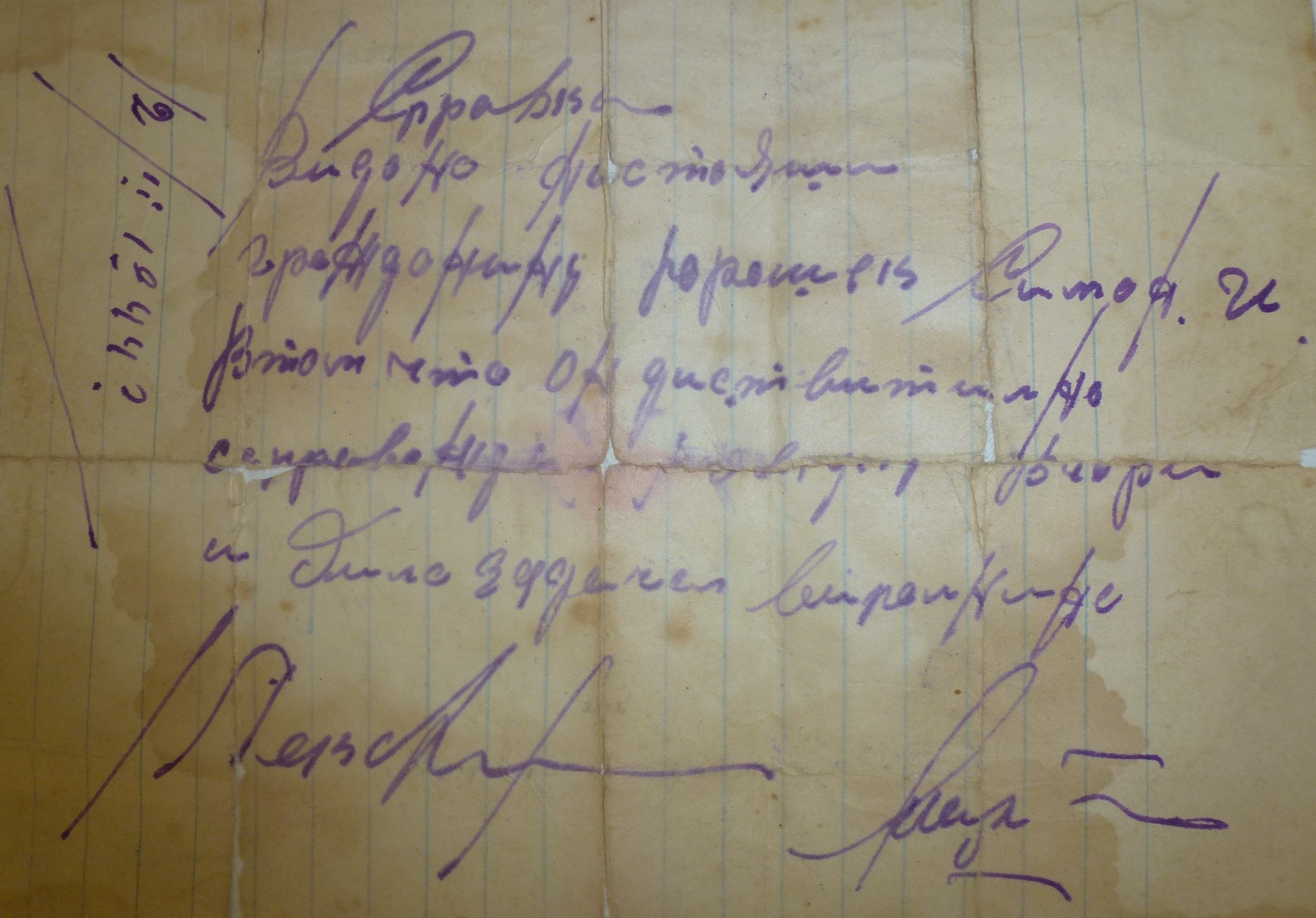
"Справка выдана настоящим гражданину Симон И. в том, что он действительно сопровождал разведку вчера и была задача выполнена" - "This document was given to the citizen Simon I. as proof that he did accompany the reconnaissance yesterday and the mission was accomplished"
My father went home and told us what happened on the mountain. Some of us didn’t believe it could help. However my Mum told him to hide this piece of paper, because it is war and we never know what can happen.
On 1st May 1944 Hiltler’s Army were marching along the road. We heard them, there were a lot of soldiers. They came to the church. It was Sunday morning (8 am), there were people inside the church. German soldiers locked the church and were laughing at the people, they said they would not leave the church. One of Poiana’s inhabitants Michał Najdek, said they couldn’t hurt the people, because their fathers and brothers were in German Army. Finally German soldiers freed the people. All they rushed home.
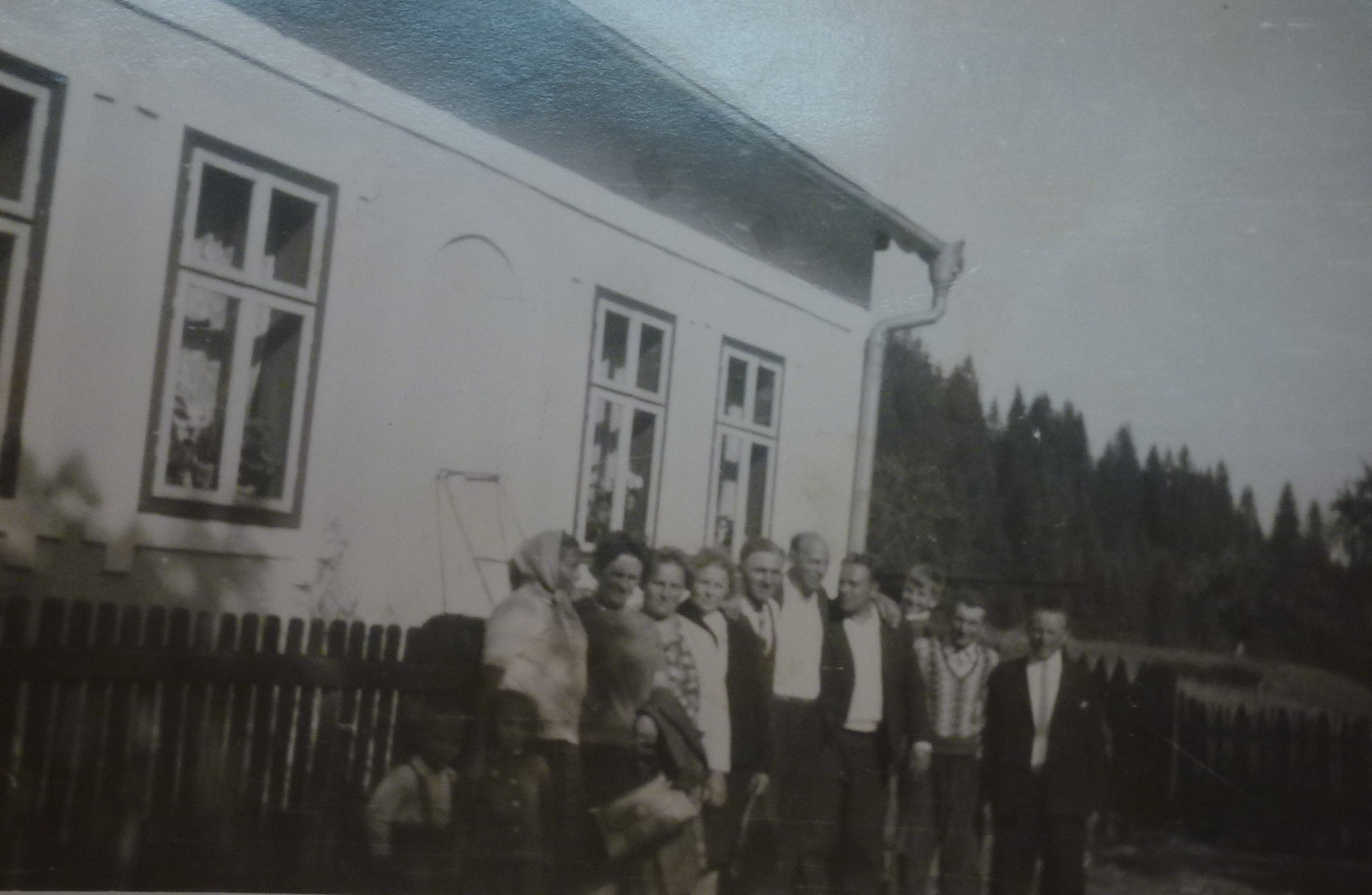
Mr Juraszek’s parents’ (Szymon and Eugenia) house before WW2, built in 1910.
One of German soldiers went to my uncle Michał and told him our village was going to be burnt. He told my uncle to pack some necessary things and run away and not to tell anybody in the village about it. However my uncle warned people in the village – some of them believed him, another ones – didn’t.
My sisters as soon as they came back from the church, started to pack everything (featherbeds, pillows, pans, clothes,…) and took the things to the field. At about 4 pm three German soldiers arrived in our house and ordered to leave the house in five minutes. My Mum told me and my brother to let the cows leave the farm, what we immediately did. We lived next to the woods and our cows went to it. When we left our farm we saw the road full of people with farm animals walking towards the forest. When we reached the forest we saw our Poiana burning. The village was burning all the night and it was as light as during the day. The whole night we were staying in the forest. We found a place under a tree and together with my younger brother and sister we lied there. Our Mum covered us with the featherbed. At night it was snowing. During the day it was much warmer and the snow melted fast. In the morning we were climbing down the village – everything was burnt, and it smelled terribly. One house outside the village wasn’t burnt completely. We brought some water and put out the fire. We wanted to live there, but the next day Soviet patrol came and told us we had to run away because the front would be in our village.
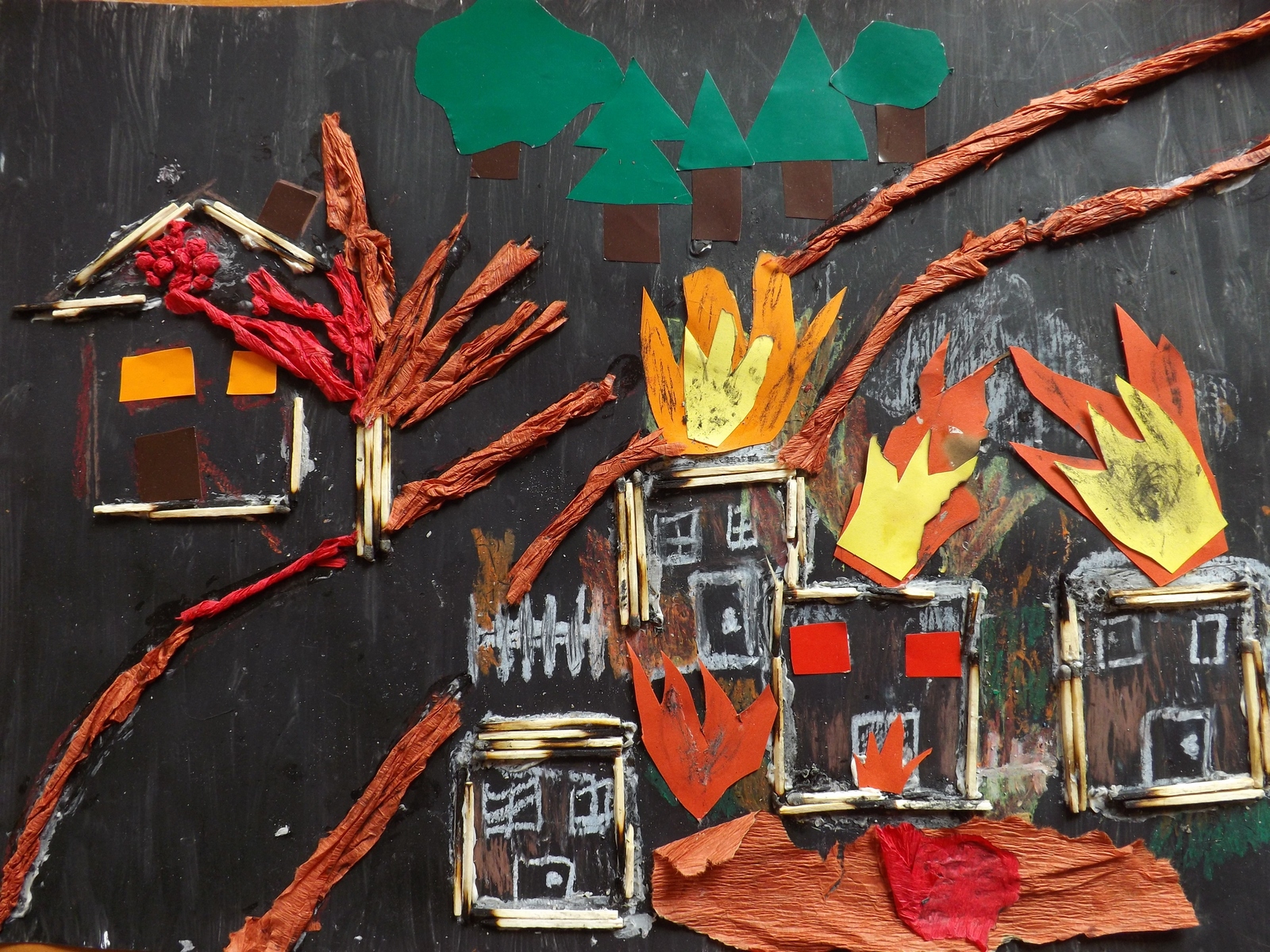
Poiana on fire by Hania
We left our Poiana, we were evacuated to Tereblacz, 50 km far away from Poiana. The journey was very slow – we didn’t have horses (they were taken by soldiers), the wagons were drawn by cows. The weakest people were sitting on the wagons, the others were walking. On our way to Tereblacz we ate salted pork fat and we drank milk. Our Mum cooked mamalyga (flour with milk). When we were on the Soviet side, Soviet soldiers came to us for milk and for a bucket of fresh milk they were giving us two loaves of bread.
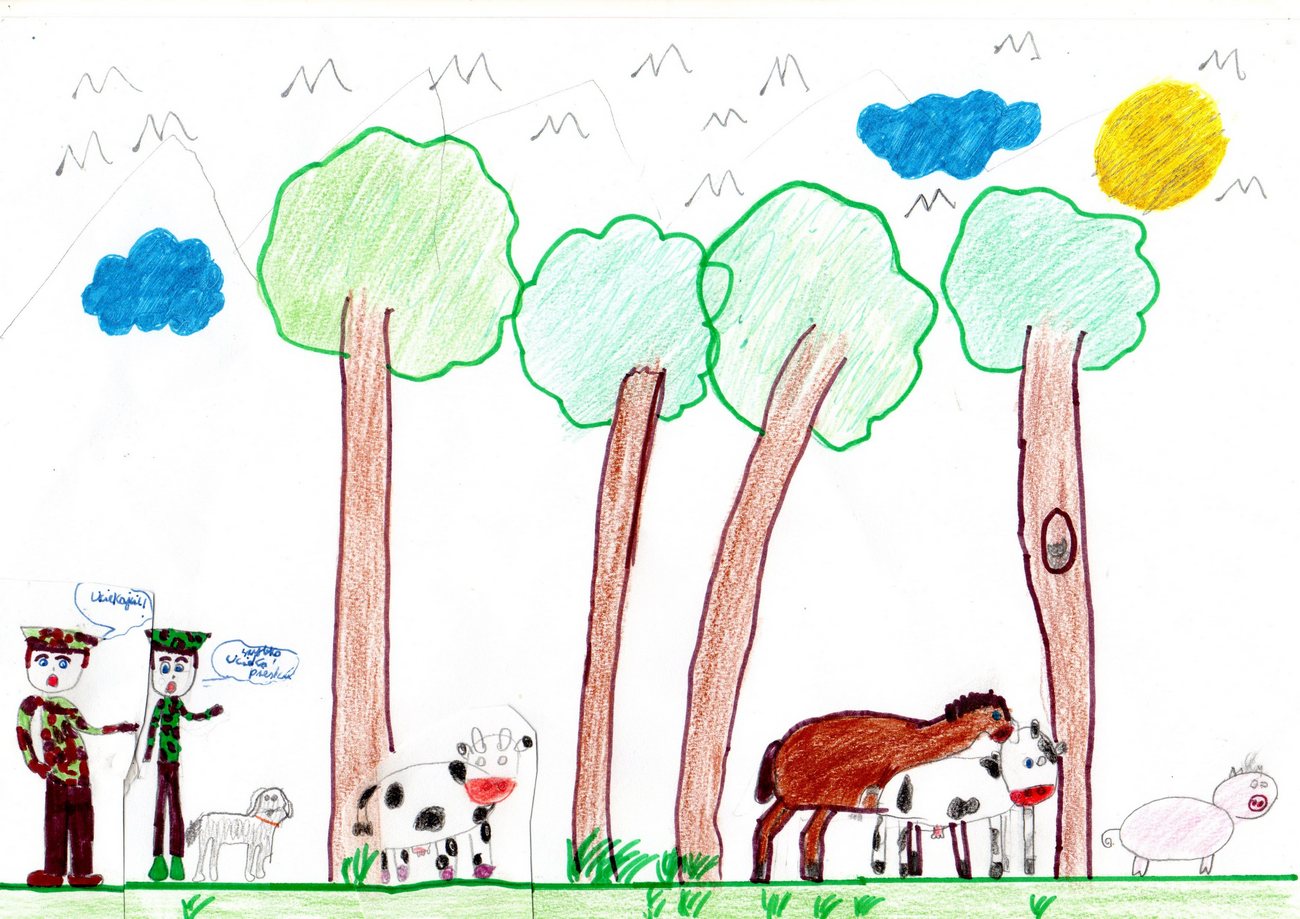
Farm animals in the woods
When we reached Tereblacz we couldn’t enter the town as the border was in front of it. We were looking for a place to stay. We stopped in a warehouse building in Seret where we stayed for 3 months. At the end of August 1944 we could return home. A problem again! The border moved and Seret was in the Soviet Union – we didn’t have passports and we couldn’t cross the border! My father used the piece of paper he was given by the Soviet officer. It worked! The whole group of people could cross the border and we could come back to our home village.
On our way home we went through Radowce, where my two older sisters Maria and Rozalka stayed to work in a distillery.
When we came back home to Poiana we built a simple shed and we built over the basement. We made wooden beds and we survived the winter. Luckily the winter was quite warm.
At the beginning of spring Maria (one of the sisters working in the distillery) came home with a very bad news – Rozalka (the other sister) was chosen to be sent to a Soviet camp to work there. My Mum told my Dad to take that piece of paper and to try to free Rozalka. My Dad did so, Rozalka was already on the truck and if my Dad had come some minutes later she would have been sent to the camp. This way the piece of paper written by the Soviet officer helped us twice, saved us twice.
In 1946 our village was visited by some people from Romanian government with Polish consul and they told us not to trouble with rebuilding the farms, because there were Recovered Territories in the west of Poland with farms to live in them. The bravest ones went with the first transport in October 1946. After a month-long journey in cattle wagons they reached Dzierżoniów. They were settled in State Agricultural Farm in Dobrocin. They wrote to Poiana: We have work, we have somewhere to live, we have food. Do not afraid, come to Poland.
The second transport arrived in Dzierżoniów in March 1947, the third one – in July 1947. I came here with the third transport. At the beginning we lived in Dobrocin, where we lived in a palace. In February 1948 we moved to Piława Dolna, to an estate, where Soviet soldiers had been staying before. The estate was transformed into a State Agricultural Farm (PGR in Polish), because we couldn’t have our own farms then. Adults worked in the PGR, children went to school. I was taught to be a weaver. However I wanted to be a driver and I reached the aim, I worked as a driver for tens of years. In 1956 I got married.
We have been living in Poland, very well, we have had bread. We have had everything to live and we can live. In Poiana there was poverty, terrible poverty, we came back from such a poverty…
